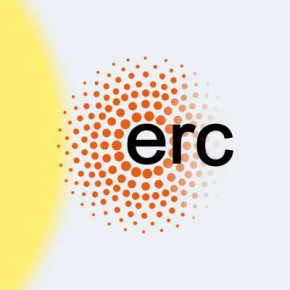2024 ERC 'Advanced' grants: 8 projects at the CNRS
The European Research Council (ERC) has just announced the results of the 'ERC Advanced Grant 2024' call for established researchers. The CNRS is the host institution for 8 of the grant-winning projects.
The results of the 'ERC Advanced Grant' call for 2024 have just been published: the European Research Council (ERC) is funding 281 researchers in Europe through its 'Advanced' grants of a total of €721 million from the Horizon Europe framework programme. These grants enable scientists with national and international recognition to work on innovative, high-risk projects that open up new directions in their discipline or in other fields. These grants are for established researchers who are thus at a higher level of experience than beneficiaries of the 'Starting' (up to €1.5 million, for European project leaders who obtained their PhD between 2 and 7 years ago) and 'Consolidator' (up to €2 million, between 7 and 12 years after the PhD) grants. These are 5-year projects and have a maximum budget of €2.5 million1 .
The CNRS is the host institution for 8 of the winning projects which ranks the organisation ahead of Oxford University (7 projects), the swiss EPFL (6) and the University of Amsterdam (6). The CNRS is also the European institution with the highest number of winners with more than 265 ERC grants awarded in the Horizon Europe programme.
Grant-winners hosted by the CNRS:
- Scott Armstrong, Laboratoire Jacques-Louis Lions (CNRS/Sorbonne Université/Université Paris Cité), for the ReGroStaFT “Renormalization Group and Statistical Field Theory” project
- Christopher Bauerlé, Institut Néel (CNRS), for the UltraWave “Quantum entanglement with ultrashort charge wavepackets” project
- Razvan Caracas, UMR-Institut de physique du globe de Paris (CNRS/IPGP/Université Paris Cité), for the DAWN “The dawn of the Hadean atmosphere” project
- Marc Chaussidon, UMR-Institut de physique du globe de Paris (CNRS/IPGP/Université Paris Cité), for the DUST “From gas to dust: searching for the reactions at the origin of the first solids in the solar system” project
- Andrii Klymchenko, Laboratoire de bioimagerie et pathologies (CNRS/Université de Strasbourg), for the CaptuRel “Capture-and-Release Organic Nanomaterials for Optical Sensing and Control of Cells” project
- Mathieu Kociak, Laboratoire de physique des solides (CNRS/Université Paris-Saclay), for the FreeQCC “Free Electrons to Bound Electrons and Photons Quantum Coherent Coupling” project
- Thomas Lecuit, Institut de biologie du développement de Marseille (CNRS/Aix-Marseille Université), for the GeoMorpho “Geometric constraints and feedback during tissue morphogenesis” project
- Hélène Morlon, Institut de biologie de l'École normale supérieure (CNRS/ENS-PSL/Inserm), for the PlankDiv “Diversification of the Eukaryotic Plankton in the Sunlit Ocean” project
- 1Additional funding may be provided under special conditions.
